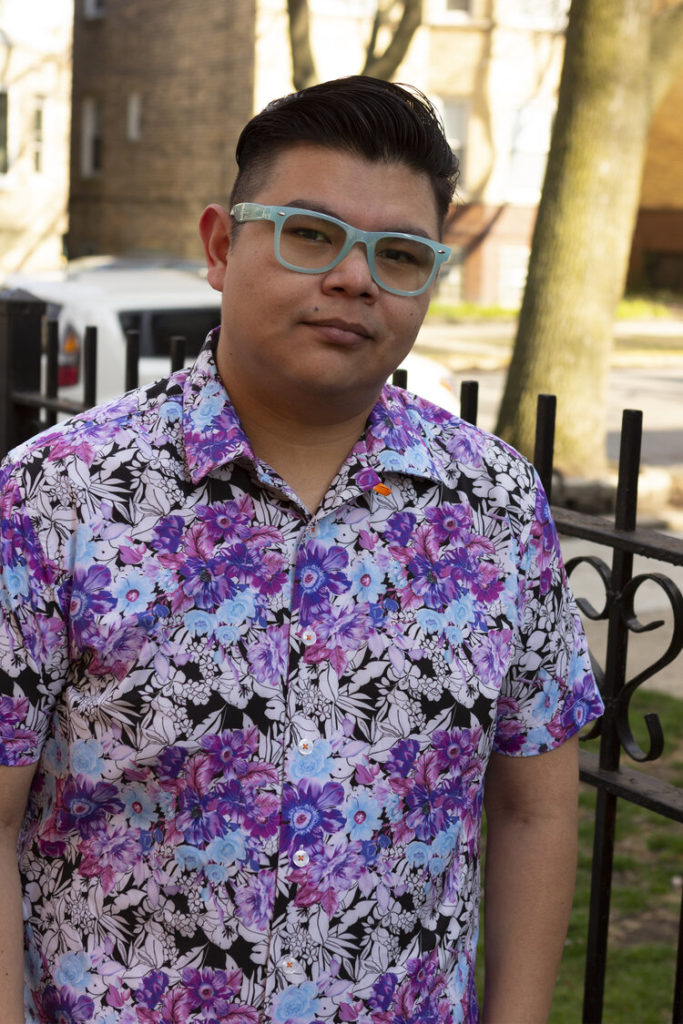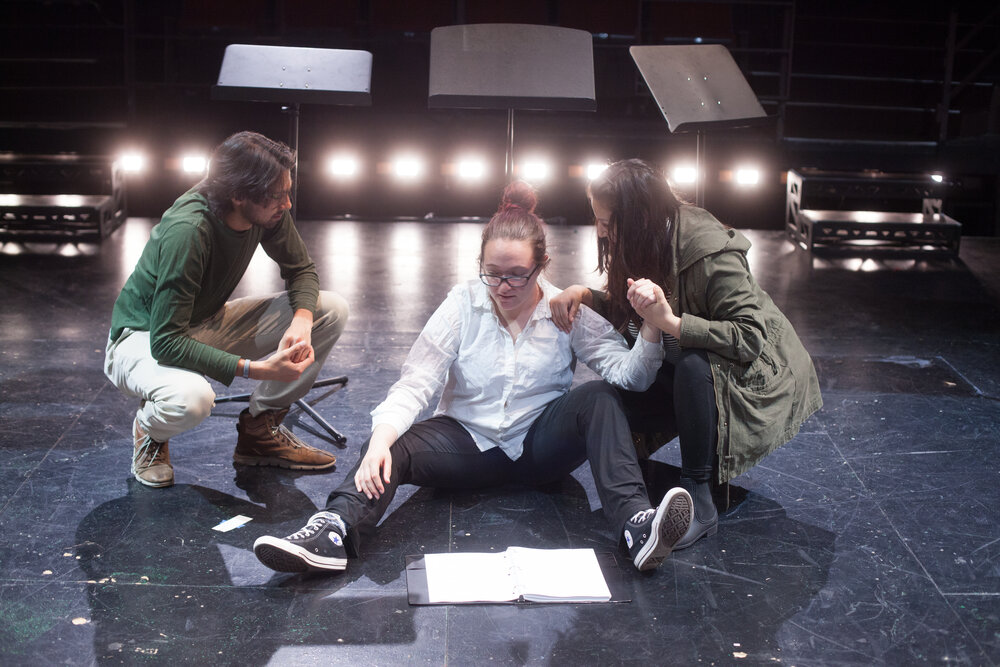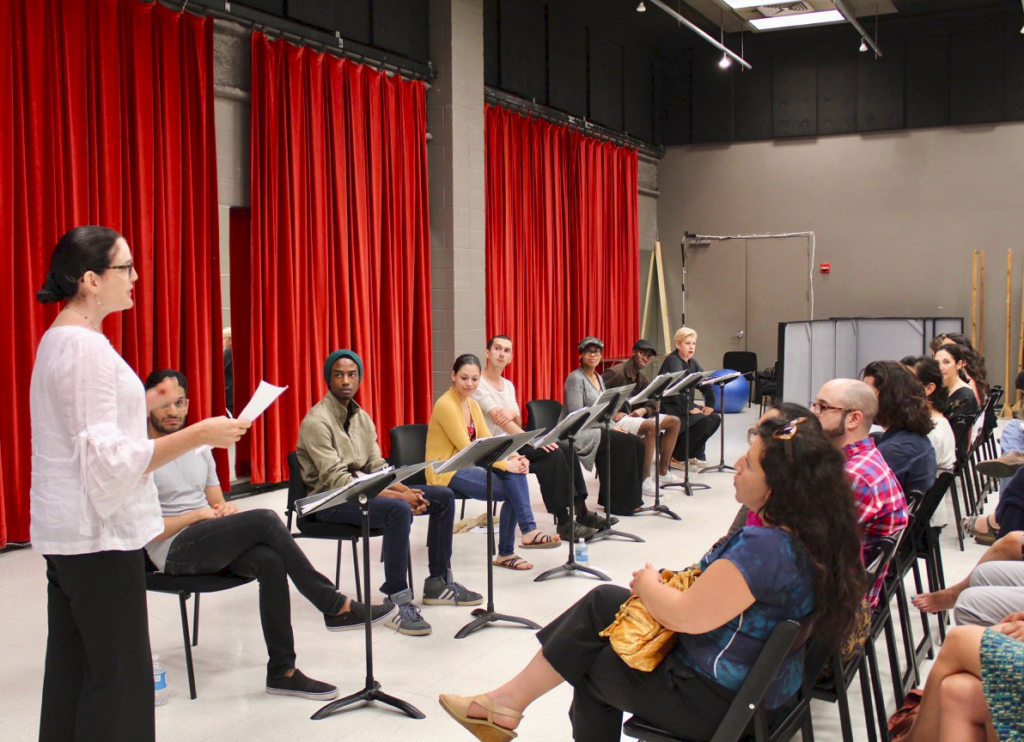
Biography
Exal Iraheta (he/him) is a Salvadorian-American playwright and screenwriter based in Chicago. Born in Houston, his work focuses on themes of sexuality, Latinidad, and family. His plays include They Could Give No Name (2019), Rules of a Closed Door (2019), Kill Your Darlyngs (2019), Open Vena (2019), Neighborhood Watch Group (2019), and I Don’t Want Flowers (2015). His work has been developed and produced at theaters including the GOodman Theatre, the Broadgate Theatre, Theatre Row, Overworld Theatre, and Annoyance Theatre. He studied at Northwestern University, earning a MFA in Writing for the Screen and Stage, and the School of the Art Institute of Chicago receiving a BFA in Film, Video, and New Media. He earned an honorable mention for the 2019 Relentless Award and was a semi-finalist for the Activate: Midwest New Play Fest. He was a selected playwright with the Theater Masters (a group dedicated to building up the next generation of American playwrights), a part of the Goodman Theatre Playwrights Unit, and a playwright at the Fornés Playwriting Workshop.
Career Highlight
They Could Give No Name (2019) received a reading at Victory Gardens’ Ignition Festival of New Plays in Chicago, IL.
They Could Give No Name
- Genre: Drama
- Breakdown:
- 4W Latina
- 1M Latino, 1M White
- Synopsis:
- They Could Give No Name follows Nellie, a pregnant white passing Latina in her mid 30s working as a medical examiner living in a fictional border town in Arizona with her husband, Nick, a white man in his late 30s who works as a border patrol officer. Nick accidentally kills a young immigrant girl and brings her to Nellie, hoping to cover it up. When the spirits of the dead that have passed through her morgue talk to her, Nellie is forced to confront her cultural history.
- Development/Production History:
- Production (2019), Northwestern’s New Play Festival at the Virginia Wadsworth Wirtz Center for the Performing Arts in Evanston, IL. Directed by Danielle Roos
- Staged Reading, Victory Gardens’ Ignition Festival of New Plays. Directed by Chay Yew.
- Weblink to purchase play from publisher:
- Photos from production:

Rules of a Closed Door
- Genre: Drama
- Breakdown:
- 3M Latinx
- 2W Latinx, 1W Anglo
- Synopsis:
- Rules of a Closed Door follows Hector, a 33 year old Latino visiting his highschool friend Mariz and her husband Eddie, his cousin who sexually abused Hector when they were young. Hector confronts Eddie’s mother, Tia Elena, in a church asking why she had lied and covered up the abuse all these years, pointing out that Jesus is always watching. Hector soon confronts Eddie, who acknowledges the abuse and his relationship to Hector.
- Development/Production History:
- Received an excerpt reading and development at the 2018 Fornés Playwriting Workshop at the The Goodman Theatre in Chicago, IL
- Weblink to purchase play from publisher:
- Photos from production:

- Plays
- I Don’t Want Flowers (2015)
- They Could Give No Name (2019)
- Rules of a Closed Door (2019)
- Open Venas (2019)
- Kill Your Darlyngs (2019)
- Neighborhood Watch Group (2019)
- Bibliography
- Greenspan, Hannah Herrera. “Victory Gardens Theater Announces Lineup for Ignition Festival of New Plays.” Chicagotribune.com, Chicago Tribune, 20 June 2019, https://www.chicagotribune.com/entertainment/theater/ct-ent-victory-gardens-theater-ignition-festival-lineup-20190618-wsx6qly5vrfljbwuqaz4rmjqu4-story.html
- Victory Gardens Announces IGNITION Lineup.” PerformInk, 18 June 2019, https://perform.ink/victory-gardens-announces-ignition-lineup-2/
- Web Resources
Reflection on Contribution to Anti-Racist Theatre
Exal Iraheta’s playwriting asks audiences to examine their relationship with their own culture and others. He often explores Latinx/e culture and focuses on relationships within the community. Consistently bringing up themes of family, heritage, and tradition, Iraheta’s work explores characters who struggle with their own identity and takes them on a journey to reconnect with their heritage. His plays are marked by self discovery, and a reflective look at one’s life and how one’s culture can improve it. He makes the claim that colonization and western ideology drives a wedge between an individual’s soul and body. The solution is to look backwards, towards one’s ancestors and history. Iraheta’s message resonates with the individual who has been indoctrinated into self-hatred. These powerful plays force the audience to examine their own bloodlines and to acknowledge who they are. The reconnection to something that was once lost is a fundamental step for many belonging to minoritarian groups, who later hope do carry out anti-racist work. Iraheta asks audiences to take that first important step, to recognize racism within ourselves and address it, so that we can enter into the world and carry out anti-racist work for others.
Compiled by your Nicolas Gutierrez, Music Theory and Theatre, 2023